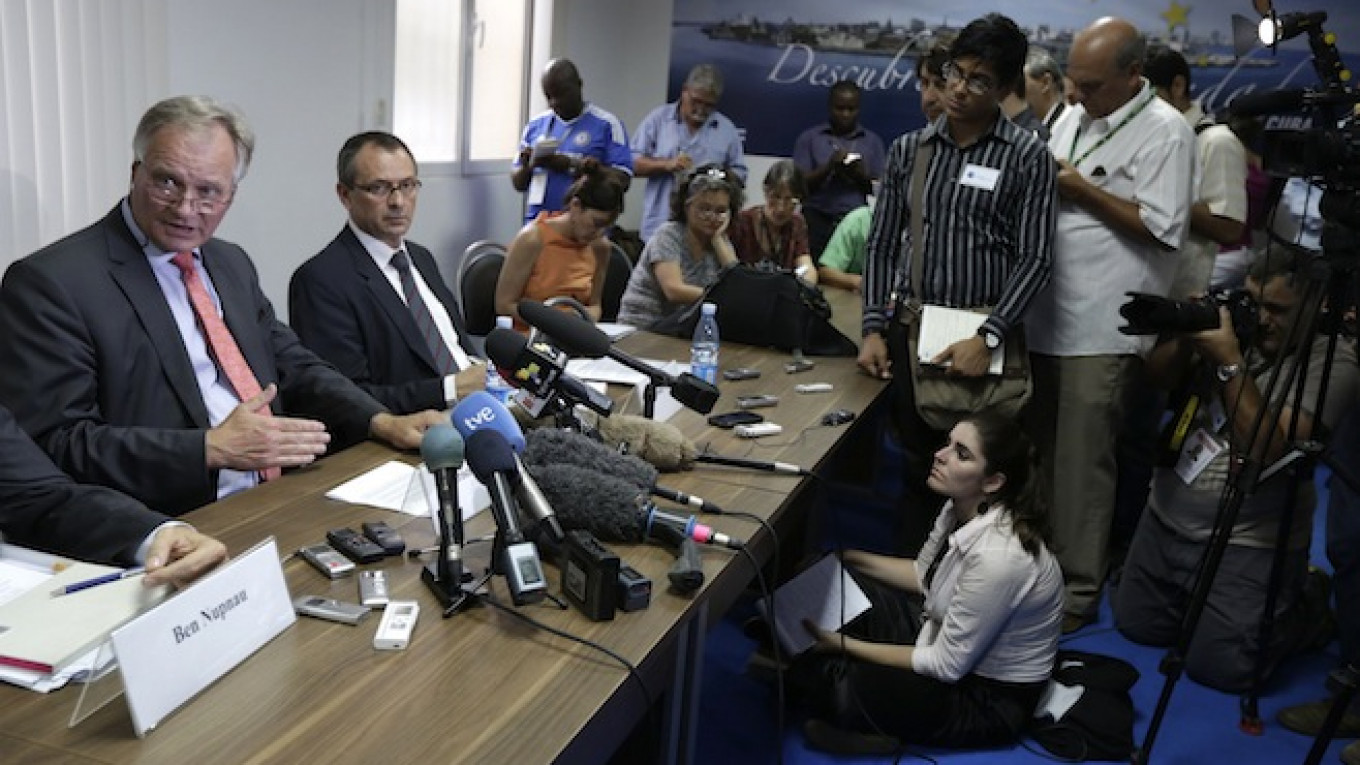The EU told Cuba on Wednesday it disagreed with its support of Russia in the Ukraine crisis as the dispute cast a shadow over talks aimed at improving relations between the communist-run island and European countries.
"It's a point of great concern to the EU," the EU's chief negotiator in the talks, Christian Leffler, told reporters in Havana.
Negotiators for the 28-nation bloc and Cuba met on Tuesday and Wednesday in Havana for a first round of talks. Only the European side spoke about the meetings afterward.
Leffler said the differences over Ukraine did not affect the talks but were an example of what would be discussed in future discussions.
Speaking hours before the first meeting, Cuban Foreign Minister Bruno Rodriguez publicly criticized the EU and the U.S. for imposing sanctions on a number of Russian officials.
"Cuba energetically rejects the imposition of sanctions against Russia, knowing that those who impose them are the same governments that have launched wars of conquests that intervene in the internal affairs of sovereign countries and provoke the destabilization of governments that don't go along with their interests of domination," Rodriguez said in an appearance with Foreign Minister Sergei Lavrov, who was in Havana.
Leffler said Rodriguez's comment did not affect the two days of talks but that he had raised the Ukraine issue in a separate meeting with him.
"We clearly disagree with this assessment of EU policy towards Ukraine and towards Russia in the context of the Ukrainian crisis," Leffler told the news conference.
Leffler, a Swede who heads European diplomacy in the Americas, said the Ukraine crisis raised issues of sovereignty and territorial integrity that the EU considers fundamental.
Cuba has stood by Moscow, formerly the closest of allies and a crucial economic supporter of Cuba in the days of the Soviet Union.
Cuba's relations with the EU have been frayed since European member states adopted a "common position" in 1996 that placed human rights and democracy as conditions for improving ties with the Caribbean country.
The two sides recently agreed to open discussions on issues such as human rights, trade and investment.
Leffler said the talks this week were "very constructive."
"There was a clear interest on both sides to come to a quick, common understanding of what the bases are for this negotiation," he said.
Also see:
Russia and Cuba in 'Friendly' Talks Amid Tension With West
A Message from The Moscow Times:
Dear readers,
We are facing unprecedented challenges. Russia's Prosecutor General's Office has designated The Moscow Times as an "undesirable" organization, criminalizing our work and putting our staff at risk of prosecution. This follows our earlier unjust labeling as a "foreign agent."
These actions are direct attempts to silence independent journalism in Russia. The authorities claim our work "discredits the decisions of the Russian leadership." We see things differently: we strive to provide accurate, unbiased reporting on Russia.
We, the journalists of The Moscow Times, refuse to be silenced. But to continue our work, we need your help.
Your support, no matter how small, makes a world of difference. If you can, please support us monthly starting from just $2. It's quick to set up, and every contribution makes a significant impact.
By supporting The Moscow Times, you're defending open, independent journalism in the face of repression. Thank you for standing with us.
Remind me later.






